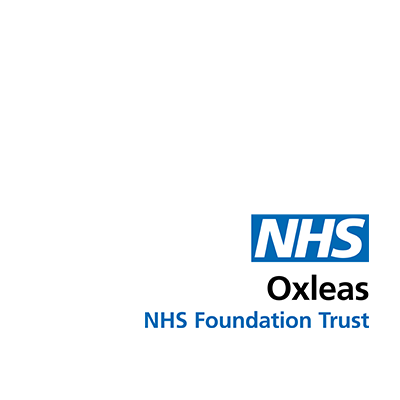
Themes
- Digital transformation
- Embedding cultural change
- Freeing up staff time
Oxleas NHS Foundation Trust provides community and mental health services to a population of just under two million people across south east London and parts of Kent. The trust also provides offender healthcare within secure environments across Kent, south east and south west London and more recently across ten prisons in parts of the south west. The trust's efforts to improve productivity sit side by side with digital transformation and identifying digital solutions to help staff to provide the best care they can.
Securing the foundations to digitise care
As an immediate response to the challenges of the pandemic, the initial focus has been on ensuring the right infrastructure and equipment are in place to enable staff to work in an effective and agile way. Part of the trust’s recent work has included transitioning from a mainly desktop to a 'laptop estate', so staff have reliable connectivity and flexibility to work remotely. Many of their community care teams had already benefitted from the roll out of iPads, which let them access patient records remotely.
The trust has also supported the introduction of digital devices, such as tablets, on inpatient wards. This allows staff to conduct routine observations and record patients' progress in real time. Despite facing challenges with delivering training during the pandemic, their roll out has reduced reliance on a time-consuming paper-based system and freed up staff to concentrate on providing care for patients. It’s also had the additional benefit of providing a richer data set to ensure patients are receiving the appropriate levels of observation.
Improving patient care while moving it online
Other digital initiatives have empowered patients to have more control and choice over their care. Before the pandemic, the trust conducted about 1,000 video consultations per year. Now, the trust averages around 2,800 video consultations per month, following a decrease from their peak during the pandemic. Virtual appointments are a good option for many patients, giving them greater choice over how their care is delivered (where this is clinically appropriate). It also offers greater scope for staff to work flexibly, while continuing to see a higher volume of patients per day.
In June 2023, the trust completed the six-month roll out of electronic prescribing across all its 23 inpatient wards. This has improved the use of medicines, reduced the risk of patients missing their medication and supported staff to manage medication requests from patients. A staff survey completed during the project roll out showed 94% thought the system saved them time, 56% said it meant they had more time for patient care and 26% said it had improved their wellbeing. Approximately 45 minutes of nursing time per ward, per day was saved because of reduced medication queries, medication orders and scanning and uploading of drug charts.
Patients and staff have also benefited from the implementation of Oxcare, the co-produced patient engagement platform, which supports service users and their network to play an active role in their care. Patients can message securely with their care team at any time and access a resource library covering a wide range of conditions and support offers. Clinicians can also gain a deeper understanding of their patients' needs and reduce the time spent on information gathering during appointments. This is possible because the platform allows patients to fill out an 'About Me' section and complete a questionnaire before their appointment. Additionally, patients can use the diary feature to monitor health indicators such as weight, smoking habits, and activity levels. By allowing trusts to see protected characteristics data, it also has the added benefit of helping them to understand what they can do differently to support patients.
Investing time in cultural change
Implementing these changes did not happen overnight and investing time and energy into engaging with staff from the outset was a crucial element of the trust's digital transformation. The trust wanted to ensure they had a clear understanding of the current processes. Multi-disciplinary staff from a range of services were involved in designing the new ways of working; shadowing clinicians at work also helped with scoping areas for improvement or standardisation. The digital team understood that with platforms like Oxcare, the clinical teams were the best people to determine how it could be best utilised to support patients.
The trust is also keen to support staff and ensure deployment of the technology is effective. It has uploaded useful content to its intranet, introduced 'digital weeks' and hosted face-to-face drop-in sessions to help staff improve their digital skills and understand how to use the tools at their disposal more efficiently and effectively.
Reflections
The cultural change required for effective implementation of the digital initiatives and realising their subsequent productivity benefits is no small feat, although the trust benefited from the integration of its data, ICT and digital transformation teams. For the tools to be used effectively, an element of cultural change needed to take place and close working between the ICT and trust communications team to support this. Oxleas emphasised that getting buy-in and sponsorship from staff on the ground at an early stage was key, as well as recognising the time needed for the productivity gains to be seen.
The trust is clear this is not the end of their journey. Oxleas is constantly horizon scanning to understand how it can further improve operations at the trust. For example, the trust is now exploring how it can unlock further productivity gains by potentially automating some of the higher volume tasks in HR and other services to let staff focus their energies on less standardised work. They are also exploring how AI and new technologies can boost productivity in both clinical and non-clinical roles.